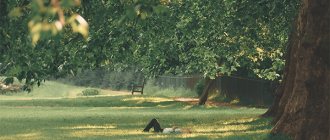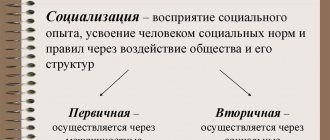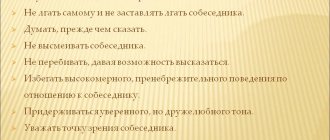Human resources are his potential, strength. In psychology, this includes abilities, knowledge, abilities, skills, beliefs, values, states, intelligence, positive thinking, high self-esteem, mental and physical health, and much more. In general, everything that supports a person inside and out helps him live productively and effectively. The more of these elements a person has, the more effective his relationships with the world and with himself are. Let us examine in more detail what human resources are and what they are.
Health (physical and psychological)
A healthy human body, which receives the required amount of rest and food, and also expends its internal sexuality and energy in the required amount - these are the internal resources of a person, on which most of the success in life depends.
The psychological component (mental processes and its functions) are also regarded as fundamental resources. The internal components of the personality psyche are erudition and erudition, imaginative and abstract thinking, intelligence, the ability to use information, the ability to analyze and synthesize, attention, quick switching from one object to another, will and imagination.
Components of a person’s personal resources
In psychology there is no unified classification of sources of strength. Let us summarize these elements in the form of a table of internal and external human resources:
| Domestic | External |
| Time | Information |
| Health | Connections |
| Intelligence | Money |
| Emotions | Power |
Sometimes hidden psychological resources are also identified. These include energy, perception, awareness, intention.
Now let’s look at the most important personal (internal) resources of a person in more detail. Advancement up the career ladder, success in your personal life and in relationships with friends, the nature of your relationships with society, and life satisfaction depend on them.
Health and physical strength
Psychological comfort depends on physical comfort. It's hard to think about anything else if you're in pain or if your life is in danger. In addition, strong immunity, good health and a physically developed body help a person to be active and mobile.
For example, we all know how a common cold can unsettle you for weeks and disrupt all plans. Or this example of the importance of health. Drivers and others who sit a lot know how important it is to keep their back healthy. Otherwise, you may find yourself bedridden and unable to work.
In addition to physical health, psychological well-being is also important. Therefore, it is necessary to get enough sleep, eat right, avoid stress, and solve emerging psychological problems in a timely manner.
Important! Physical health, well-being and a strong body are the key to everything in our lives.
Intelligence
Intelligence is translated from Latin as “perception”, “understanding”, “understanding”, “concept”, “reason”. This is the ability to cognition, comprehension and problem solving. It is also the ability to organize activities in such a way that all the information contained in the brain will be used with maximum benefit and efficiency.
Intelligence is a more complex structure than people usually imagine. It is associated with such cognitive abilities as:
- attention;
- imagination;
- thinking;
- performance;
- perception;
- sensation;
- memory.
In addition, it is important to know that there are 9 types of intelligence:
- natural (naturalistic);
- musical;
- logical-mathematical;
- existential (philosophical);
- kinesthetic (bodily);
- interpersonal (social);
- spatial (figurative);
- linguistic (verbal);
- personal (internal).
The problem is that many people focus on only one resource - logical-mathematical intelligence (IQ). And because of this, they do not notice their true potential, do not use and ignore their inner strengths.
Positive thinking
It is important not to confuse this with blind optimism. With positive thinking, a person does not convince himself that everything is fine and does not ignore difficulties. He sees them and acknowledges them, but at the same time he is confident that he can cope with any setbacks. He is confident in himself, knows his strengths and weaknesses, and knows how to use them wisely. Such a person perceives difficulties as opportunities. Positive thinking encourages a person to pay attention to personal resources, use them, replenish and replenish them.
Self-esteem
Only with adequately high self-esteem can you achieve success in life. Low or high self-esteem leads to a person’s inadequate assessment of reality.
For example, with low self-esteem, he blames only himself for all failures and goes into self-flagellation. And with inflated self-esteem, he shifts responsibility to other people. In the first case, a person underestimates his abilities and gives in to difficulties, does not even try to express himself or try something. In the second case, a person overestimates his abilities and capabilities - because of this, he often ends up losing.
Note! With low self-esteem, a person criticizes himself as a person. With adequate self-esteem, a person criticizes his individual actions, thoughts, actions, but at the same time he maintains faith in himself and a sense of self-worth.
Skills
A skill is a skill that has been brought to automaticity. In psychology, it is customary to distinguish four types of skills: motor, mental, sensory and behavioral skills. It is worth mentioning separately about professional skills; they are based on the main four types. With the help of all these skills, a person becomes useful to society, enters it, establishes connections and takes his place in any system of relations, be it the work sphere or personal relationships.
Self-control
Self-control is the ability to remain calm and sober, to make informed decisions in difficult life situations. Without self-control, it is impossible to build harmonious relationships with others, build a career, learn something and move through life. Loss of self-control is fraught with conflicts and rash actions with disastrous consequences. A person with poor self-control can cause harm to himself and others.
Emotions and positive thinking
Various emotional states are inexhaustible resources. Internal moods can set the rhythm of both the physical body and the psyche as a whole. In this case, the resources are both a feeling of favorable emotions, such as joy, happiness, fun, peace, and a feeling of grief, sadness, anger, rage. But each emotion must have a creative function. For example, rage and anger in defending one’s rights can set personal boundaries and will not allow the opponent to violate them. But rage aimed at destroying (moral or psychological) another person already has a destructive function.
A creative perspective will allow you to develop the ability for positive thinking, which very often becomes an assistant in resolving many problems and troubles in life.
Character
Character refers to not only those traits that are highly moral and attractive to society as a whole, but also those that help an individual move toward achieving certain results. For example, anger and irritability are not very welcome in society, but thanks to them a person will always be able to stand up for himself in a difficult situation. That is why such traits are also resources. The internal resources of the individual, consisting of character, of course, must be close to the ideals of society. It is worth remembering that all character traits must manifest themselves at the right time and in the right place, in which case they will only benefit the person himself and those around him.
Resource state technique
This leads to the most important question: how to enter a resourceful state and set yourself up to perform specific tasks.
Creating a resource state is a fairly simple action. But everyone has their own algorithm. The following recommendations can serve as tips. With their help, you can find your way to form a resource state and enter the “flow” at any moment when it is required.
So, what methods can provide resource state:
Personal motivational trainings. No, not paid programs from leading coaches or psychologists. Everything is simpler. Personal motivational training is everything that inspires and motivates you to do the right thing. For sports activities, this could be recordings of performances or films about sports. For career success - programs about outstanding people. For renovations - magazines or websites about interior design. Preparations for future affairs. Once something has already been started, it is easier to continue. For an article, you can write an outline in advance. For soup - prepare chopped vegetables. For jogging, take out your sneakers. Simple operations will allow you to tune in to the desired resource state. Postponed matters. A great life hack that allows you to increase your energy by switching between different things. Small successes in your favorite things will allow you to get the missing resource to achieve great results. Biorhythms. Everything is simple here: it’s easier for larks to get into the flow in the morning, for owls - in the afternoon
It is also important to get enough sleep, take care of your health and nutrition, and maintain natural physical activity. Minimizing emergency situations. The “squirrel in a wheel” state is not the best for entering to search for a resource
It is best to live according to Eisenhower squares and achieve excellent success in everything. Circle of friends. Like-minded people inspire! Success Diary. Recording even small successes serves as the basis for great inspiration.
After achieving a resource state, it is a good idea to use the anchoring technique. Then in the future the transition to activity and concentration will happen faster and easier.
And, of course, pamper yourself! Contentment in life is the main basis of any resource. Therefore, it is worth maintaining positivity by any means!
Interesting articles:
Skills, abilities, experience
A skill is something that a person has learned to do, and a skill is the automation of a skill. Thanks to this, a person can benefit the people around him. In this way, the internal resource that lies in skill is manifested.
Experience, processed and experienced, is an important human resource. Everything that a person was able to realize and feel is already experience, and in the future the person can consciously use it in similar situations to overcome any difficulties.
What it is
It is easy to guess that this word came from another language and was “overgrown” with context in popular culture. Initially, a resource (from the French ressource “auxiliary means”) is everything that a person uses to achieve his goals (from a spear to a cup of coffee). However, in psychology there is another meaning.
So, a resource is a multifaceted concept that includes abilities, skills, a person’s internal state, his intelligence and self-esteem, mental and physical health. In essence, this is what supports him inside and out, helping him to live effectively and “quality”. It is very important that all these elements are at the proper level, otherwise a person will not be able to fully interact with the world around him.
Self-esteem and identification
Identity is what we identify and identify with. The last characteristic can be professional, social-role, or gender. It is also an internal resource that allows us to perform those functions and responsibilities that we consciously accept. Self-esteem plays an important role in a person’s life and the correct use of this resource. We can say that it is a real assessment of one’s position in society and one’s attitude towards oneself that allows one to weigh one’s own actions and failures, draw conclusions and continue to achieve one’s life goals.
Notes
- ↑
- Ananyev B.G.
On the problems of modern human science. - St. Petersburg: Peter, 2000. - 288 p. - Ananyev B.G.
Man as an object of knowledge. - St. Petersburg: Peter, 2001. - P. 4. - 288 p. - Aristotle.
Metaphysics. About the soul. // Op. in 4 volumes - M.: Mysl, 1976. - 552 p. - Ganzen V. A., Golovey L. A.
The relationship between potentials and tendencies in the structure of individuality // Personality and activity. - L.: Publishing house Leningr. state University, 1982. - Rybalko E. F., Golovey L. A.
Potentials of age-related development // Psychology: Textbook / Ed. A. A. Krylova. - M.: Prospekt, 1998. - P. 239-240. — 584 p. — ISBN 5-7896-0050-6. - Grishchenko N. A.
Intellectual potential // Psychology: Textbook / Ed. A. A. Krylova. - M.: Prospekt, 1998. - P. 186-188. - Maklakov A. G.
Fundamentals of psychological support for professional health of military personnel. — Author's abstract. diss. doc. psychol. Sci. - SPb.: St. Petersburg. state University, 1996. - 37 p. - Kondakov A. M.
Education as a resource for the development of personality, society and state / Diss. doc ped. Sci. - M.: Institute of Contents and Teaching Methods RAO, 2005. - 322 p. - Druzhilov S.A.
Individual human resource as the basis for the development of professionalism. - Voronezh: Scientific book, 2010. - 260 p. — ISBN 978-5-98222-702-7. - Tolochek V. A.
Activity styles: resource approach. - M.: Publishing house "Institute of Psychology RAS", 2015. - 366 p. — ISBN 978-5-9270-0299-3.










